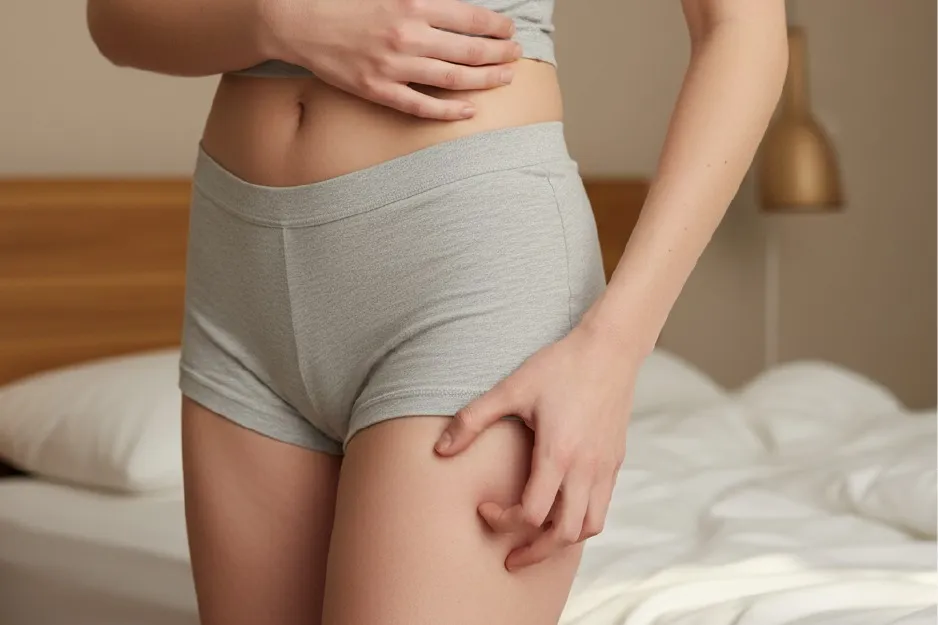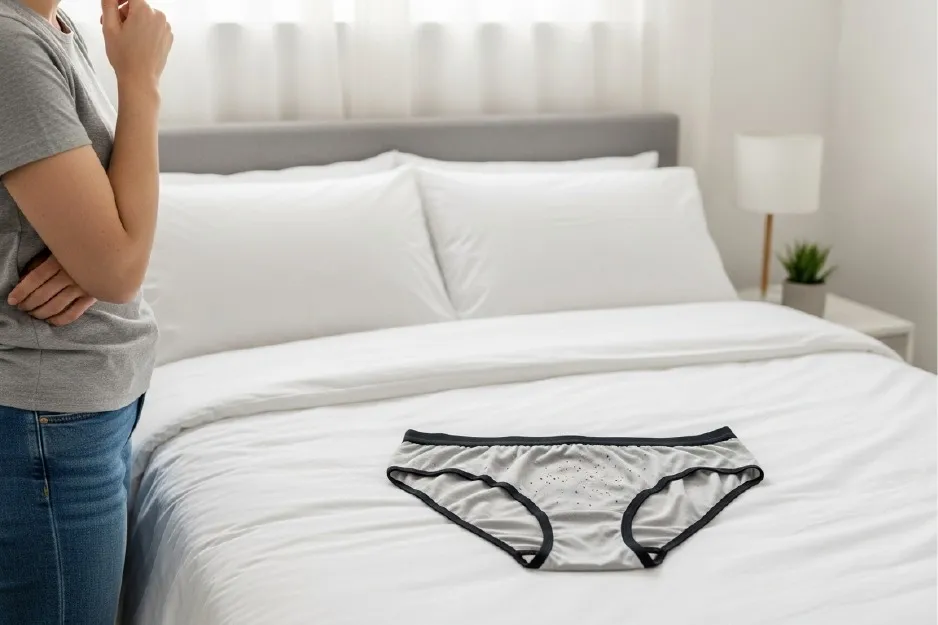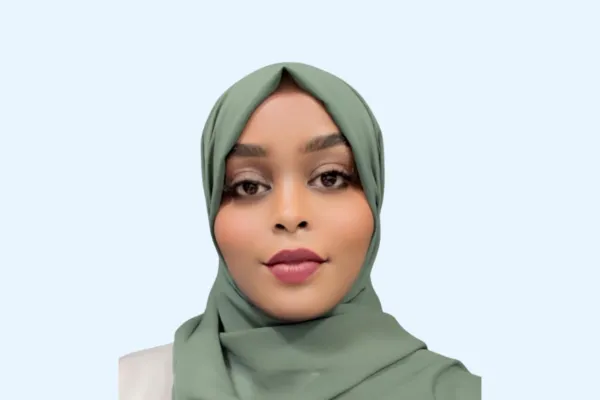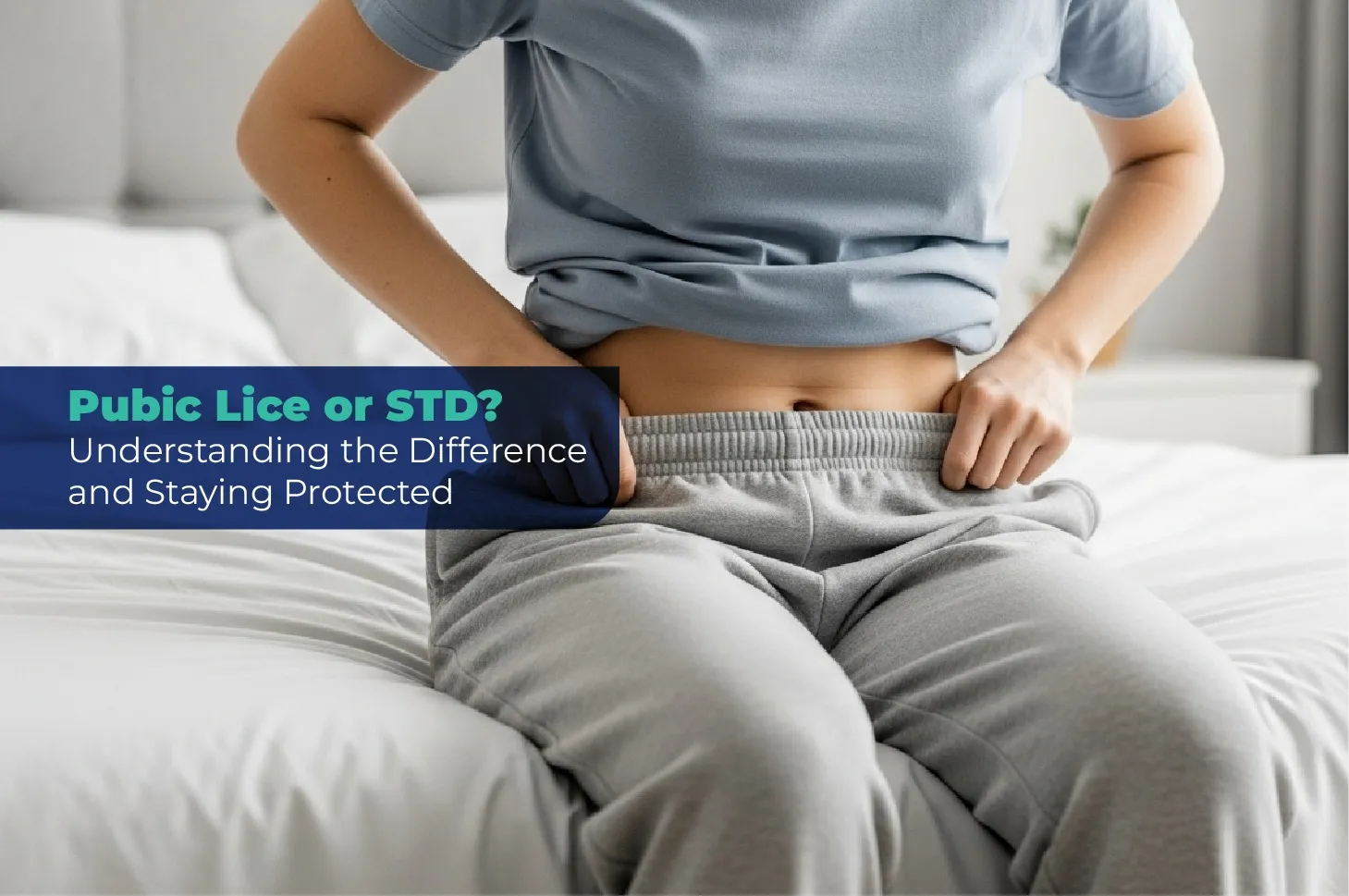Discovering unusual symptoms in intimate areas naturally raises concerns about sexually transmitted diseases. However, not all genital conditions are STDs—some, like pubic lice, fall into a different category altogether. Understanding the distinction between pubic lice and traditional STDs helps Dubai residents make informed health decisions, seek appropriate treatment, and protect themselves and their partners effectively.
What Are Pubic Lice (Crabs)?
Pubic lice, commonly called "crabs" due to their crab-like appearance, are tiny parasitic insects that infest coarse body hair, primarily in the pubic region. Scientifically known as Pthirus pubis, these blood-feeding parasites measure just 1-2 millimeters in length—roughly the size of a pinhead—making them barely visible to the naked eye.
These insects have evolved specifically to live on human hosts and cannot survive on animals. With six legs and large claw-like front appendages designed for gripping hair shafts, pubic lice spend their entire lifecycle clinging to coarse hair near the skin surface. They feed exclusively on human blood multiple times daily, laying eggs (nits) that cement firmly to hair shafts close to the skin.
Global prevalence estimates suggest approximately 2% of the adult population experiences pubic lice infestation, with about 3 million Americans affected annually. While historically more common, rates have declined recently due to modern pubic hair grooming practices. However, pubic lice remain a significant concern in Dubai's diverse, internationally connected population, where close personal contact and travel create transmission opportunities.

Are Pubic Lice a Sexually Transmitted Disease?
This question generates considerable confusion, requiring careful clarification. Pubic lice are classified as a sexually transmitted infection (STI) because sexual contact represents the most common transmission route among adults. However, they differ fundamentally from traditional STDs caused by bacteria, viruses, or other pathogens.
The critical distinction lies in what you're contracting. Traditional STDs like chlamydia, gonorrhea, herpes, and syphilis involve infectious microorganisms that cause disease. These pathogens damage tissues, trigger immune responses, and can cause serious health complications without treatment.
Pubic lice, conversely, are parasitic insects—external organisms living on your body rather than infecting it. They don't transmit diseases themselves, though they cause significant discomfort and skin irritation. While sexual contact spreads them most effectively, you can also contract pubic lice through non-sexual close contact, sharing contaminated clothing, towels, or bedding.
Importantly, approximately one-third of people diagnosed with pubic lice test positive for concurrent sexually transmitted infections. This correlation occurs because similar risk factors—multiple partners, unprotected sexual contact—increase exposure to both pubic lice and traditional STDs. Anyone diagnosed with pubic lice should undergo comprehensive STD testing in Dubai to rule out coexisting infections.
How Pubic Lice Spread in Dubai
Understanding transmission mechanisms helps Dubai residents protect themselves in various social and intimate situations. Direct skin-to-skin contact during sexual activity represents the primary transmission route. During intimate encounters, pubic lice crawl from one person's pubic hair to another's. The insects move by crawling—they cannot jump or fly—making direct contact essential for transmission.
Sexual intercourse isn't strictly necessary for transmission. Any close genital contact, including manual stimulation or intimate touching where pubic areas contact each other, can spread lice. One sexual encounter with an infested person carries high transmission risk, making awareness of partners' health status important.
Beyond sexual contact, pubic lice spread through shared personal items. Using contaminated towels, bedding, underwear, or clothing from an infected person can transfer lice. Dubai's numerous gyms, spas, hotels, and shared accommodations present environments where such transmission might occur without proper hygiene practices.
In rare cases, lice spread through close non-sexual contact. Sharing beds with infested individuals, prolonged close hugging with genital area contact, or touching infested hair and then touching your own pubic area can transfer lice. Parents should note that pubic lice found on children's eyelashes or eyebrows may indicate sexual abuse and requires immediate medical evaluation.
Pubic lice survive only 1-2 days off human bodies, making transmission from toilet seats or swimming pools extremely rare despite common myths. They require frequent blood feeding and cannot grip smooth surfaces effectively, limiting environmental transmission.
Recognizing Pubic Lice Symptoms
Early symptom recognition enables prompt treatment before infestation worsens. The incubation period typically lasts five days to three weeks after initial infestation before symptoms appear. This delay occurs because itching results from allergic reactions to lice saliva rather than the insects themselves.
The hallmark symptom is intense itching in the pubic area and groin, particularly severe at night when lice are most active. This persistent itching can extend to other coarse hair areas, including armpits, chest, abdomen, thighs, beard, and rarely eyebrows or eyelashes. The itching intensity often drives people to seek medical attention, as it significantly disrupts daily life and sleep.
Visual signs include small gray or tan insects visible on pubic hair, though their tiny size makes them difficult to spot without magnification. White or yellowish nits (eggs) firmly attached to hair shafts near the skin appear as tiny dots that don't brush off like dandruff. Dark specks of lice droppings may appear in underwear as rust-brown or black powder.
Skin changes frequently occur from lice bites and scratching. Small red or blue-gray spots mark feeding sites on skin in the pubic area, inner thighs, lower abdomen, and buttocks. These maculae caeruleae can persist for days. Persistent scratching may cause skin thickening, darkening, scratch marks, crusting, and bleeding. Secondary bacterial infections can develop in broken skin, causing additional pain and swelling and requiring antibiotic treatment.
Some people remain asymptomatic despite infestation, unknowingly spreading lice to partners. Regular self-examination and awareness of potential exposure help detect infestations early.
Key Differences: Pubic Lice vs. STDs
Understanding distinctions between pubic lice and traditional STDs prevents confusion and ensures appropriate care. The causative agent differs fundamentally—pubic lice are visible parasitic insects, while STDs result from microscopic bacteria (chlamydia, gonorrhea, syphilis), viruses (herpes, HIV, HPV), or protozoans (trichomoniasis). You can see pubic lice with magnification, but STD pathogens require laboratory testing.
Health consequences vary significantly. Pubic lice cause primarily cosmetic and comfort issues—intense itching, skin irritation, embarrassment—but don't cause serious medical complications. STDs can lead to severe health problems, including pelvic inflammatory disease, infertility, chronic pain, increased HIV transmission risk, pregnancy complications, and even death without treatment.
Diagnosis methods differ accordingly. Healthcare providers diagnose pubic lice through visual examination, identifying live lice or nits on body hair. STD diagnosis requires laboratory testing of blood, urine, or swabs to detect pathogens. Vesta Care's at-home STD test in Dubai provides convenient, confidential screening for common sexually transmitted infections throughout Dubai.
Treatment approaches also vary distinctly. Pubic lice respond to topical insecticidal shampoos and lotions available over-the-counter, killing lice and eggs within hours. STDs require specific antimicrobial treatments—antibiotics for bacterial infections and antivirals for viral infections—often involving prescription medications and longer treatment courses.
Prevention strategies overlap partially but differ in effectiveness. Barrier methods like condoms effectively prevent most STDs but provide limited protection against pubic lice, which inhabit areas condoms don't cover. Avoiding shared personal items prevents pubic lice transmission but doesn't protect against STDs transmitted through body fluids.
Treatment Options Available in Dubai
Effective treatment eliminates pubic lice quickly when followed correctly. Over-the-counter pediculicides represent first-line treatment. Permethrin 1% lotion or cream rinse (such as Nix) kills lice and some eggs effectively. Apply to dry affected areas, leave for 10 minutes, then rinse thoroughly. Pyrethrins with piperonyl butoxide (like RID) work similarly, though they're slightly less effective than permethrin.
Prescription treatments become necessary for resistant cases or special circumstances. Malathion 0.5% lotion treats resistant infestations, though it requires longer application (8-12 hours) and has an unpleasant odor. Ivermectin, available as oral tablets or topical lotion, offers alternative treatment when other options fail. Lindane shampoo, once commonly used, is now discouraged due to neurotoxicity risks and should only be used when no alternatives exist.
Treatment requires two applications at least seven days apart to kill newly hatched lice from eggs that survived initial treatment. Follow package instructions precisely regarding application time, coverage area, and rinsing procedures. Treat all affected body areas simultaneously—pubic region, abdomen, thighs, armpits, chest, beard—not just obvious infestation sites.
Vesta Care's DHA-licensed doctors provide convenient at-home consultations throughout Dubai, examining affected areas privately in your residence and prescribing appropriate treatments. Our medical professionals offer guidance on proper application, follow-up care, and partner notification without embarrassing clinic visits.
Environmental decontamination prevents reinfestation. Wash all clothing, bedding, and towels used within three days before treatment in hot water (at least 60°C) and dry on high heat. Items that can't be washed should be dry-cleaned or sealed in plastic bags for two weeks, allowing any lice to die. Vacuum upholstered furniture and carpets thoroughly.
Prevention Strategies for Dubai Residents
Protecting yourself from pubic lice requires practical preventive measures suited to Dubai's social environment. Limit sexual partners to reduce exposure risk. While not foolproof, fewer partners decrease the probability of encountering someone with pubic lice or other STDs. Open communication with partners about sexual health history enables informed decisions.
Avoid sharing personal items that contact body hair. Don't share towels, razors, clothing, or bedding with others at gyms, hotels, spas, or shared accommodations. Dubai's numerous fitness centers, hospitality facilities, and shared living spaces require vigilance about personal hygiene items.
Maintain pubic hair grooming if desired. Research shows decreased pubic lice rates correlate with increased pubic hair removal, as lice require coarse hair for attachment. However, hair removal decisions should be personal—it's not necessary for lice prevention and carries its own considerations.
Practice safe sex consistently. While condoms don't fully protect against pubic lice, they significantly reduce STD transmission risk. Using barrier protection for all sexual activity protects against more serious infections even if lice transmission remains possible.
If diagnosed with pubic lice, inform recent sexual partners immediately so they can seek examination and treatment. Avoid sexual contact until treatment successfully eliminates all lice and eggs—typically one week after the second treatment application. Partner treatment prevents reinfection cycles.
When to Get Tested in Dubai
Knowing when to seek professional evaluation protects your health comprehensively. Get tested if you experience unexplained genital itching, notice visible insects or white specks in pubic hair, develop unexplained skin irritation or red spots in the pubic area, or have been informed by a partner that they have pubic lice.
Anyone diagnosed with pubic lice should undergo comprehensive STD screening. Since one-third of pubic lice patients have concurrent STDs, testing for chlamydia, gonorrhea, HIV, syphilis, hepatitis, and other infections ensures a complete health assessment. Many STDs remain asymptomatic, making testing essential even without obvious symptoms.
Testing becomes particularly important if you're sexually active with multiple partners, engage in unprotected sexual contact, or notice unusual genital symptoms of any kind. Dubai residents benefit from Vesta Care's confidential at-home testing services, which provide comprehensive STD screening without requiring embarrassing clinic visits or time-consuming appointments.

Take Charge of Your Sexual Health in Dubai
Understanding the distinction between pubic lice and traditional STDs empowers informed health decisions. While pubic lice cause discomfort rather than serious medical complications, their connection to STD risk makes comprehensive testing essential. Recognizing symptoms, seeking prompt treatment, and implementing preventive strategies protect both yourself and your partners.
Vesta Care eliminates barriers to sexual health testing and treatment in Dubai. Our DHA-licensed medical professionals provide completely confidential at-home examinations, STD screening, and treatment recommendations delivered privately to your home, hotel, or office anywhere in Dubai. Available 24/7 with service in just 45 minutes, we bring professional healthcare directly to you.
Don't let embarrassment or inconvenience prevent you from protecting your health. Contact Vesta Care today at 800 4 VESTA or WhatsApp +971 52 270 4729 to schedule discreet testing and consultation. Serving all Dubai areas including Jumeirah, Palm Jumeirah, Dubai Marina, Downtown Dubai, Business Bay, Arabian Ranches, and beyond, we're here to support your sexual health with professionalism, privacy, and convenience.
Frequently Asked Questions
Can you get pubic lice from toilet seats in Dubai?
No, this is a myth. Pubic lice cannot survive on smooth surfaces like toilet seats and die within 1-2 days off human bodies. Transmission requires direct contact with infested hair or contaminated fabrics.
How long do pubic lice survive without treatment?
Without treatment, pubic lice continue reproducing indefinitely. Adult lice live about one month, but females lay 30 eggs during that time, maintaining ongoing infestation until treated.
Does having pubic lice mean I have an STD?
Not necessarily, but about 30% of people with pubic lice test positive for other STDs. You should get comprehensive STD testing to rule out concurrent infections.
Can pubic lice spread to head hair?
Rarely. Pubic lice are anatomically different from head lice and prefer coarse body hair. They typically don't infest scalp hair but can spread to beards, chest hair, armpits, and eyelashes.
Is one treatment enough to eliminate pubic lice?
Usually not. Two treatments seven days apart are recommended to kill newly hatched lice from eggs that survived the first application. Environmental cleaning is also essential.
Should my partner get treated if I have pubic lice?
Yes, absolutely. All sexual partners from the past month should be examined and treated simultaneously to prevent reinfection cycles, even if they show no symptoms.
This article is medically reviewed by:

Recent Posts
Book Your Home Healthcare Consultation Today
Your Health Matters – Reach Out Now and Let’s Discuss How Vesta Care Can Help.











